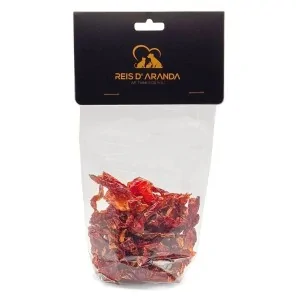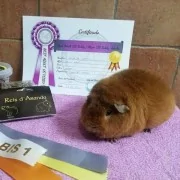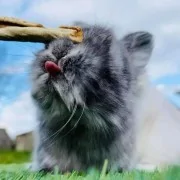The Tornjak originated from genetically homogeneous, almost extinct, indigenous shepherd dogs. These dogs have...
RECOMMENDED VEGETABLES FOR RABBITS AND GUINEA PIGS
Rabbits and guinea pigs are adorable pets and need a balanced diet to keep them healthy and happy. Vegetables are an essential part of a rabbit's diet, providing important nutrients such as vitamins, minerals and fibre. Here are some recommended vegetables for rabbits, along with their health properties:
SPINACH:
Spinach is an excellent source of iron, calcium, and vitamins A, C and K. These vitamins and minerals are essential for bone, eye and immune system health in rabbits and guinea pigs.
CARROTS:
Carrots are rich in vitamin A and beta-carotene. They also provide fibre, which helps to maintain a healthy digestive system, they should be given in moderation due to their high sugar level, with the leaves being preferable.
BROCOLI:
Broccoli is a vegetable that contains vitamin C, fibre and antioxidants. However, it should be given in moderation, as in excess it can cause digestive problems in rabbits and guinea pigs (gas).
CELERY:
Celery is a low-calorie vegetable that provides fibre and vitamins such as A, C and K. This vegetable is also good for maintaining the dental health of rabbits and guinea pigs, as it helps to wear down their growing teeth.
KALE:
Kale is rich in vitamin C, calcium and fibre. These nutrients are beneficial to the overall health of rabbits and guinea pigs and help maintain a shiny coat and healthy skin.
CUCUMBER:
Cucumber is a refreshing vegetable that contains high levels of water, which helps keep rabbits and guinea pigs hydrated. It is also low in calories and a source of vitamin K, which is important for blood clotting and bone health.
COURGETTE:
Courgette is an excellent source of fibre and vitamins such as C and K. This vegetable is gentle on the digestive system of rabbits and guinea pigs and helps maintain good gastrointestinal health.
LETTUCE:
Lettuce is a low-calorie vegetable that provides fibre and vitamins, such as A, C and K. However, it is recommended to give preference to dark or red lettuce varieties, and to avoid iceberg lettuce altogether, which has a lower nutritional value and can cause diarrhoea.
ARUGULA:
Arugula is a vegetable with a slightly peppery taste that is rich in antioxidants and vitamin C. This vegetable is beneficial to the immune system of rabbits and guinea pigs and helps fight free radicals in their bodies.
CANONIGARDS:
Lamb's lettuce is a mild, mild-tasting vegetable that is easy for rabbits and guinea pigs to digest. It is a good source of minerals such as calcium, which is essential for bone health in pets.
ENDIVIA:
Endive is a bitter vegetable that contains fibre and antioxidants. It helps to stimulate the appetite of rabbits and guinea pigs and maintain a healthy digestive system.
WATERCRESS:
Watercress are vegetables packed with nutrients, such as iron, calcium and vitamins A and C. These vegetables are excellent for adding variety to the diet of rabbits and guinea pigs and promoting healthy skin and a shiny coat.
PEPPERS:
Peppers are a source of vitamin C and antioxidants that are beneficial to the immune system of rabbits and guinea pigs, we can give any colour (never hot varieties), with red being preferable due to its higher level of vitamin C.
CHARD:
Chard is a source of fibre, vitamins A, C and K, as well as minerals such as iron and calcium. These vegetables are ideal for eye health, bone health and contribute to a strong immune system in rabbits and guinea pigs.
GREEN BEANS:
Green beans are rich in fibre, which makes them beneficial for the digestion of rabbits and guinea pigs. In addition, they contain vitamin C and antioxidants which contribute to the general well-being of pets, we will give them only the pod (no seeds).
It is important to remember that introducing new vegetables into a rabbit's diet should be done gradually, to avoid digestive problems. In addition, it is crucial to wash and cut fresh vegetables properly before feeding rabbits and guinea pigs. Always consult with an exotic animal veterinarian before making major changes to your rabbit or guinea pig's diet.
Leave a comment
Log in to post comments
Comments
Muy interesante
By: Mariluz On 05/23/2024Un artículo corto pero que me ha ayudado mucho a saber qué verduras incluir en las ensaladas de mis cuyis














